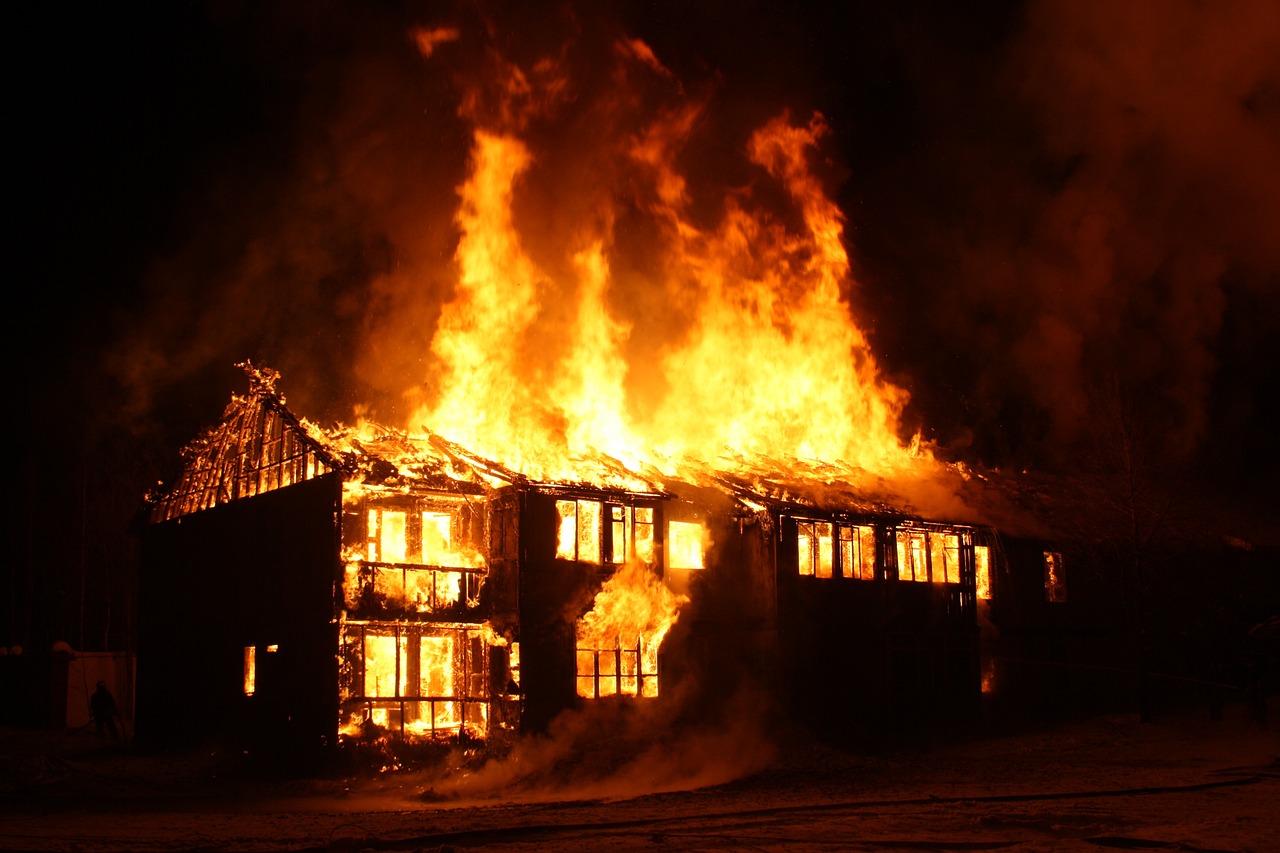Is Old Wiring A Fire Hazard?
Old Wiring A Fire Hazard
An old electrical system in an older house can pose several fire hazards due to a variety of reasons related to age, wear, outdated technology, and compliance with modern safety standards. These issues can lead to conditions that are conducive to electrical fires.
Need to speak with an experienced Colorado Springs Electrician? Give us a call – we’re happy to provide free estimates for all work. Call now!
Old Wiring Can B A Fire Hazard – Here’s How
Aging Wiring: In older homes, the wiring system may have deteriorated over time. Insulation around wires can become brittle and crack, exposing the conductive parts. This exposure increases the risk of short circuits and electrical arcs, which can ignite building materials like insulation, wood, or other flammable materials nearby.
Insufficient Capacity: Modern households typically consume more electricity than in the past due to a higher number of electrical devices and appliances. Old electrical systems were not designed to handle such high loads. This can lead to overloading circuits, which causes excessive heat build-up in wires, potentially leading to fires – old wiring a fire hazard here.
Outdated Materials and Technologies: Many older electrical systems use materials that do not meet current safety standards. For example, knob and tube wiring, common in homes built before 1940, lacks a ground wire, which is an essential feature in modern electrical systems for safety. Additionally, the lack of this grounding increases the risk of shocks and fires.
Faulty Circuit Breakers or Fuse Boxes: Older electrical panels and circuit breakers may not function properly due to wear and tear or may not trip as intended when a circuit is overloaded. This failure can allow an overloaded circuit to continue operating, which might lead to overheating and potentially cause a fire.
Improper Modifications: Over the years, modifications to electrical systems might have been made by individuals without proper knowledge or adherence to safety codes. Such alterations can lead to unsafe conditions, including mismatched wiring, overloaded circuits, and improper connections.
Old wiring a fire hazard is definitely a problem here.
Lack of Safety Features: Modern electrical systems incorporate numerous safety features, such as ground fault circuit interrupters (GFCIs) and arc fault circuit interrupters (AFCIs). GFCIs help prevent electrical shocks, while AFCIs are designed to cut off the circuit when an arc fault is detected, preventing fires. Older systems often lack these protective devices.
Lack of GFCIs – old wiring a fire hazard in this case.
Aluminum Wiring: Used during the 1960s and 1970s as a cost-effective substitute for copper, aluminum wiring can expand and contract more than copper, which can lead to loose connections and increase the risk of fire. Additionally, aluminum is more prone to oxidation, a process that can further deteriorate connections.
Is Old Wiring A Fire Hazard? We can make your home safe.
The combination of these factors makes old wiring fire hazard in older homes.
Homeowners are advised to have their electrical systems inspected by a qualified Colorado Springs electrician who can assess the system’s condition, recommend necessary upgrades or repairs, and ensure compliance with current electrical codes.
Upgrading an old electrical system not only enhances safety but also adapts to the modern electrical load, thus providing a safer, more efficient home environment.
NEED AN ELECTRICIAN IN COLORADO SPRINGS?
Free Consultation!
“Soco Electric exceeded my expectations. They installed an outdoor hookup for a new hot tub. Everything ended up looking very built in, with the conduit even formed nicely around small bends of our siding. The price was very reasonable, and Jonathan is knowledgeable and good at explaining the work needed.” Ted Firlit


